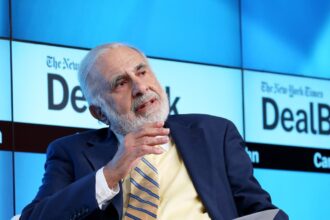Since the early 20th century, Hollywood and its global distribution juggernaut has helped promote a fascination with ‘American life’ across the world. And while this may more often than not provide a rather glorified perspective, there’s no doubt of its influence in popular culture. Social media may have evened the playing field, localizing media more than anyone could have imagined, but the US still leads when it comes to celebrity, fame and fortune.
Likewise, when it comes to wealth, the world looks to the US, where more than a quarter of the world’s billionaires reside. Its sheer scale of financial assets means the US has more influence than any other single market, so when it comes to shifts and trends in the sustainability and impact investing space, it’s interesting to see how this is playing out.
While Europe continues to adopt sustainability-minded approach to everything from reduction in plastic use to impact investing, in the US there is still a persistent anti-ESG rhetoric within the market. With recent reports of significant investment firms closing their ESG funds, a turnaround from the growth in this area seen in preceding years, and with the term ESG being considered as too politicized for use by some, from one perspective it may seem like ESG is being canceled.
Is ESG Investing Cancelled Or Celebrated?
But from the perspective of private wealth and the current transition to a next-generation that has a far greater interest in sustainability and impact investments than the current, things look remarkably different. As this new generation begins to take the reigns and has more involvement in investment decisions, they will no doubt bring their ESG-minded approach with them and significantly influence this area of the market.
Added to this is the growing belief that impact investing needn’t compromise on returns, something that the haters love to throw out in their attacks on ESG but which has not only repeatedly been reported to be untrue but the opposite the case, that these factors are a crucial part of assessment into any investment endeavor to allow better-informed decisions and more profitable outcomes.
There is also another element that this generational shift brings to impact investing, which is a geographical shift in which the centre of sustainable and impact investing moves from the EU to the US. With so many US-based family offices transitioning to a next-generation, and with greater interest in this from an investment perspective, this shift will no doubt require a whole new next-generation of wealth advisors to effectively service it.
With the average age of wealth advisors in the US at 57, there is a clear opportunity for an emerging group of younger advisors that can relate to the new tech-savvy, ESG-sensitive generation and at the same time, opportunity for well-positioned service providers that can do similarly.
Aim For Where The ESG Ball Is Heading
Forward thinking companies that provide wealth management platforms, data and analytics support and ESG-related measurement services to family offices understand this shift and are already taking action. Ken Gamsjaer, CEO and Co-founder of Aleta, a wealth platform for family offices that actually integrated various sustainability metrics into their core product, notes there have already been implications for their approach, stating, “We believe that family offices, particularly next-gen wealth owners, are eager to make a positive impact, hence we’ve made the deliberate choice to integrate ESG measures into the core of our consolidated wealth platform, alongside traditional risk and return metrics.”
Aleta is among the companies that have recognized this shift and have recently expanded into the US from Europe in order to provide suitable services to this growing market. US-based companies see the trend too, with family offices increasingly more interested in aligning their investments with their values to make an impact on the issues they care about most.
Customer-Centricity Holds The Key Here
“The role of investment advisors has shifted to include understanding not only clients’ financial goals but also what kind of future they want to see, and the legacy they want to leave,” says Amanda Baker, head of family office solutions at Ethic, which creates personalized solutions to help investors transition capital into sustainable strategies, adding, “It’s been exciting to see the effect of providing tools for transparency and impact opportunities – both on the way advisors connect with their clients, and how families view the role they can play.”
This shift is starting to play out and will no doubt evolve in its own way, affecting the family office industry and potentially contributing to any existing frictions between generations during the wealth transition. Could it be that the next-generation of family offices in America takes sustainability and impact investing from being a Euro-centric initiative and evolves it into something inherent across the most significant private wealth investment portfolios across the US? We shouldn’t bet against it.
Read the full article here










